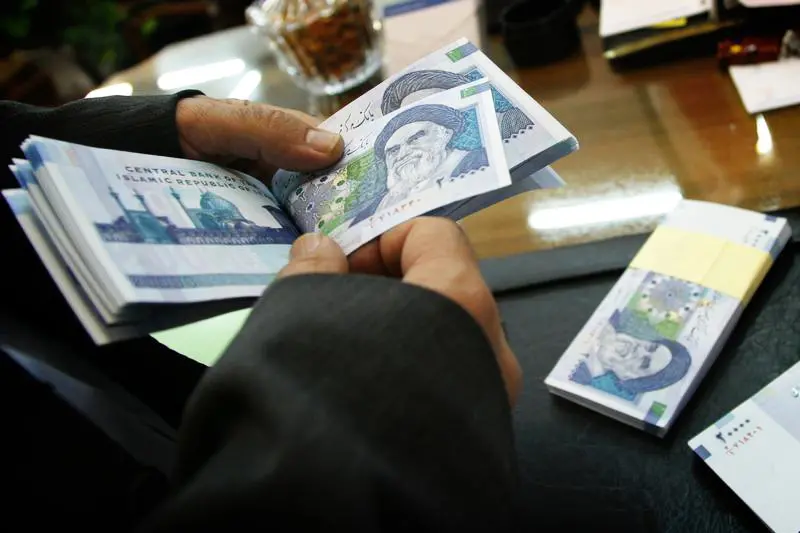PHOTO
LONDON- Iranian police cracked down on unlicensed money changers in Tehran on Wednesday, arresting around 100 traders, Tehran's police chief told local media, in a sign that authorities are concerned about speculators pushing the rial to record lows.
After a month of surveillance, around 90 money changers were arrested in 10 minutes in the streets of Tehran, police chief General Hossein Rahimi told Fars News Agency on Wednesday.
News of the crackdown helped to bolster the value of the rial, at least temporarily, and it rebounded to around 48,220 to the dollar on Wednesday. It had reached a record low around 50,000 in the free market this week, compared with 47,800 last week and 35,570 in mid-September.
Since last year, the central bank has been engineering a gradual depreciation of the rial to compensate for Iran's high inflation and to help to make exports more competitive.
But the drop has accelerated in the past few months, creating a problem for authorities, who have just contained a wave of popular protests against economic hardship and corruption. Too weak a rial could increase discontent by boosting inflation, which is running at nearly 10 percent.
The rial has been hurt by concern about Iran's agreement with world powers to curb its nuclear programme in return for the lifting of most international sanctions. U.S. President Donald Trump said last month "disastrous flaws" in the agreement had to be fixed or Iran would face a U.S. exit.
Aggressive purchases of dollars by currency speculators appear to have sped up the rial's decline; central bank governor Valiollah Seif warned speculators last month not to bet against the currency, but that did not change the trend.
"The detainees, driven by greed, were attempting to disrupt the market and economic order," Rahimi told Fars. "The judicial system should firmly punish them."
He said more than 10 currency exchanges were shut down, and 16 received official warnings.
(Reporting by Bozorgmehr Sharafedin; Editing by Andrew Torchia, Larry King) ((bozorgmehr.sharafedin@thomsonreuters.com;))





















